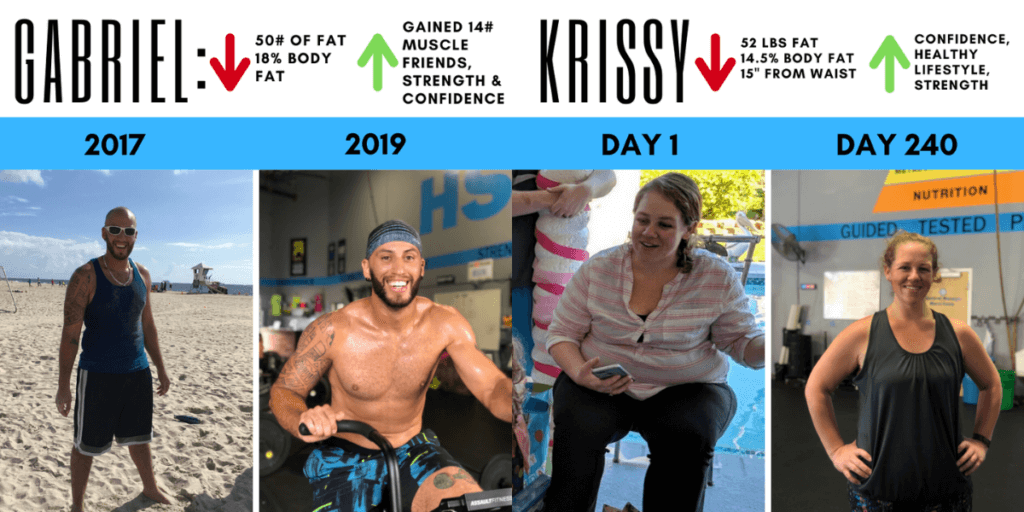A gym owners role is so dynamic, and the weight of responsibilities can often feel overwhelming. However, one strategic move can significantly lighten the load, at least when it comes to your nutrition coaching program. Regular meetings with your nutrition coaching team.
Whether you have a team of nutrition coaches, or just one nutrition coach, these meetings become a pivotal platform for providing direction, and guidance, but they also provide a space for your nutrition coaches to share their ideas for a successful program. Many times over my nutrition coaching team has come up with ideas to grow our program by seeing opportunities that I didn’t see. If I had not been meeting regularly with my nutrition coaches, and offering them a safe space to share their ideas, the opportunities may have been missed.
By regularly meeting with nutrition coaches, gym owners can effectively delegate critical aspects of the role, and offer a platform for them to turn their ideas into reality. This allows the owner to focus on being a visionary for the gym while their nutrition program grows independently of them actually having to see clients. This also gives the nutrition coaches the ability to build their own business within the walls of the gym without having to take on the risk of overhead. Additionally, when a gym owner takes time to meet regularly with their staff, it lets the staff know the gym owner supports them, cares about them, their role, and their ultimate success.
In this post, we’ll unravel the game-changing benefits of this collaborative meeting approach, showcasing how it ultimately streamlines the nutrition program operations, and empowers both gym owners, and their nutrition coaching team to do great things.
Why Is It Important For Gym Owners To Meet With Their Nutrition Coaches?

We recommend gym owners meet with their nutrition coaching team 1x per month when the program is established. If the program is new, or there is a new nutrition coach, meeting 1x – 2x per week is suggested.
In any organization, team meetings play a very crucial role in fostering effective communication, collaboration, and productivity within a team. It’s no different when dealing with a nutrition coaching team versus a team associated with any other type of business. Regular monthly meetings help in creating a positive, and efficient work environment, ultimately contributing to the overall success of the team and the gym’s nutrition coaching program.
Here are several reasons why nutrition coach team meetings are beneficial:

Communication
Well led meetings facilitate open, and direct communication among the nutrition coaching team members. They provide a platform for sharing information, updates, and feedback in real-time.
Collaboration
They encourage collaboration, and foster a sense of unity among the nutrition coaches. This allows for the exchange of ideas, brainstorming, and working together towards common program goals.
Alignment
Meetings help ensure that everyone on the team is on the same page regarding objectives, priorities, and strategies. This alignment is crucial for the nutrition coaching team, and gym owner to work efficiently towards a shared vision.
Problem Solving
They provide a forum to address challenges, and solve problems collectively. Nutrition coaches can share their perspectives, and expertise to find solutions.
Accountability
Meetings allow for the review of progress, and accountability. Nutrition coach team members can report on their tasks, provide updates on clients, and discuss any obstacles they’re facing.
Feedback and Recognition
They offer an opportunity for gym owners, and other team members a collaboration space to provide constructive feedback, and acknowledge the achievements of nutrition coaching team members. This helps in boosting morale, and motivation.
Professional Development
Meetings can be a platform for learning, and development. Nutrition coaches can share knowledge, experiences, and best practices, with each other which can contribute to their professional growth.
Decision Making
Important decisions often require input, and consensus from multiple people on the team. Nutrition coach meetings provide a structured environment for discussions leading to informed, and collective decision-making.
A great example of this would be when the nutrition coaching team wants to run a challenge inside the gym. Collaboration between the gym owner, and fitness coaches is required in order for the challenge to be successful. Planning how the collaboration will take place would happen inside one of these meetings with the owner, and nutrition coaches present. The owner would play an integral part in getting the fitness and nutrition coaching staff together to ensure that all departments are on the same page regarding the nutrition challenge.
Team Building
Regular interactions between team members in meetings help build camaraderie, and trust. It creates a sense of belonging, and strengthens the team’s cohesion.
Monitoring Progress
They serve as a means to track, and monitor progress towards goals and milestones. This ensures that the team stays on track, and can make adjustments as needed.
Why Having A Structure To Your Nutrition Coach Team Meetings Is Vital

Running a successful team meeting involves careful planning, and execution. Having a structure to nutrition coach meetings is extremely important. It’s like insurance coverage for your nutrition coaching program. Without a structure there will be no focus which allows for the meeting to become a chat session leading to zero productivity.
Keep in mind that the structure only has to be planned once. After it is developed, it can be used for all future nutrition coach meetings.
Here are several reasons why a structure is important:
Focus and Clarity
A structured nutrition coach meeting agenda helps set clear objectives for the meeting. It provides a roadmap for what needs to be discussed, and achieved, keeping everyone on track.
Time Management:
A structured meeting allows for better time management. It ensures that discussions don’t veer off course, preventing unnecessary delays, and ensuring that the meeting stays within the allocated time frame.
I like to have a “tangent” alert code word. Everyone on the team knows what the word is, and it’s shouted out when the meeting gets off track from someone going on a tangent that is not on subject.
Engagement and Participation
When team members know what to expect from the meeting, they can come prepared to actively contribute. This leads to more meaningful discussions, and decision making.
Prioritization of Topics
A structured agenda allows the prioritization of the most important topics. This ensures that crucial issues are addressed first in the event that time runs short.
Preparation and Readiness
Having a structured agenda in advance allows nutrition coaches to prepare ahead of time. They can gather any necessary information, data, or reports, which leads to more informed discussions. For example, if it is Coach Katie’s job to keep track of the nutrition coaching revenue on a monthly basis, knowing this will be covered in these team meetings allows her to come prepared with this data.
Inclusivity and Transparency
A structured meeting ensures that all relevant topics are addressed. This prevents overlooking important matters and promotes transparency within the team.
Goal Achievement
Clear objectives from structured discussions help in achieving the goals of the nutrition coaching program. It ensures that decisions are made, action items are assigned, and progress is tracked.
Accountability
A structured meeting including record keeping of what was discussed holds team members accountable for their tasks, and responsibilities.
Action should be taken from every meeting. That is how your nutrition program moves forward. Even if there are no new events, or happenings nutrition coaches can always take action on a continuing education piece monthly.
Reduced Confusion and Miscommunication
Without a structure, discussions can become chaotic or confusing. A structured format helps prevent misunderstandings ensuring that all the nutrition coaches are on the same page.
Feedback and Improvement
A structured format allows for feedback on the meeting itself. This can be used to improve future meetings, making them even more effective.
A Meeting Guide For Your Nutrition Coaching Team

Now that we understand the importance of team meetings, and why a structured format is how we become effective, lets get into the actual agenda. What should we be discussing during these nutrition coach meetings?
Here is a list of the topics we suggest our HSN Mentoring clients use during their monthly nutrition coach meetings. We provide a very nice workbook for the them to use, however if you are not an HSN Mentoring client, using canva to create a meeting guide, or Google will be just as effective.
Bright Spots
Celebrating “bright spots” is an important part of our meetings. Acknowledging wins, even if small, helps coaches recognize the positive, even when some things may not be going as planned.
Owner Support
This is the opportunity for the nutrition coaching team to identify areas they need support from the owner. Simply getting more ink for the printer, or needing Inbody sheets could be on this list. It could also be bigger things like a fitness coach promoting WAG in the gym instead of the gyms program. Regardless of the type of support needed, having a spot to identify the need is important for both parties.
Opportunities
This is one of my favorite items on the agenda. Nutrition coaching staff have the opportunity here to discuss with the owner opportunities they see that the owner may not. At my gym the nutrition coaches often come in with opportunities to engage with different organizations in the community like teachers, and schools. On several occasions they have identified opportunities within the walls of the gym to make our program better. True growth happens from asking about opportunities in your meetings.
Improvement
Here we get the teams thoughts on areas we need to improve. This can span from improvements needed with communication between clients, the coaching staff or the community to needing improvements in logistics or program structure. Anything the nutrition coaching staff comes up with that they think needs improved upon, we discuss here.
Clients
At this point the in the meeting nutrition coaching staff members discuss their clients. Maybe they have someone that wants to lose weight but it’s not happening, or there could be clients they feel have disordered eating that need to be referred to a registered dietitian. Whatever is going on with clients, this is the time to discuss it.
On Track List
An on track list is a list of common practices the most successful gyms do on a regular basis. During this point in the meeting, we go through this list to ensure we are doing the administrative things we need to do in order to be successful as a nutrition program.
Here are a few items on this list, there are many:
At least 1 success story or testimonial posted on social media each week & shared to the Instagram & FB Stories
One nutrition and wellness email sent each week
Post 1 recipe per week and link to your recipe page on your website
Member goal setting sessions at least 2x year
Lead capture tool is collecting emails with automated email sequence
The nutrition board is being updated at least 1x month
All fitness coaches KNOW what to do/say when someone asks about nutrition coaching
Coach is participating in monthly educational webinars — or watching recordings
Nutrition Program Review

Here we break down the KPI’s of our program.
Number of clients & client losses/gains
Revenue
Percent of Revenue
Leads
Conversion of Leads
Retention
Social Media Plan

Social media is huge when it comes to running a nutrition coaching program. Showcasing your clients nutrition journey, and how they are learning healthy habits is something that will get others interested in your nutrition coaching services. People buy from people, and when you post client success stories the likelihood that someone will come to you for your individualized coaching services is much higher than if you did not post them at all.
A nutrition coach today isn’t only responsible for seeing clients. Their role expands to social media and marketing as well. During this meeting you are going to plan out the social media calendar for the next month, and assign tasks to the nutrition coaches. These tasks will determine who is making videos (reels), who is sending emails, and who is posting infographics for the program this month.
Role Play

Role-playing can be a powerful tool for skill development and professional growth. There are certain scenarios that are typical of a client coach relationship. Developing a system for role play can help coaches debrief common discussions that occur with clients.
Some of these commonalities include:
Converting clients from their initial 12 weeks to ongoing coaching
Converting clients from a challenge to ongoing coaching
Future Planning
Identifying what the next events, partnerships, and engagement will be is very important for the growth of the program. Whether you are going to host an online nutrition coaching event like a virtual talk, or develop another community partnership, planning these events ahead of time is necessary.
Take Action

Notating who is going to take action on each task is vital. If tasks do not get a name by them indicating who is responsible for them, they will be left un finished. Assigning each person to action also keeps them accountable, and lets the team know who to follow up with should there be any questions.
Wrap Up
Remember The Ultimate Goal
The ultimate goal of meeting with your nutrition coaching team is for the program to run efficiently allowing the nutrition coach or coaches to help more people with things such as new eating habits, weight management, and their overall health journey. Keeping this at the forefront is important as the team moves through the meeting agenda. Sometimes emotions get the best of us when we are discussing topics we are passionate about. Too much rigidity in these meetings causes just as much frustration as lack of structure.
Some nutrition programs offer online nutrition coaching services, even for people who live locally. Additionally some gyms have remote coaches for various reasons. In order to be the best online nutrition coaches they can be, attendance at monthly meetings is a must. No passes just because they aren’t in person at the gym. If the meetings have to be streamed via zoom, then make arrangements for that to happen.

Take Action As A Gym Owner
If you are a gym owner not currently holding regular meetings with your nutrition coach, there is no better time to start than now! Make a meeting template based off of the items we discussed in this article, and schedule your first meeting. Just like clients learning about proper nutrition, the first step is always the hardest one.





